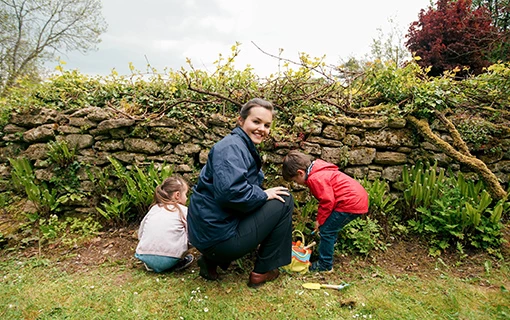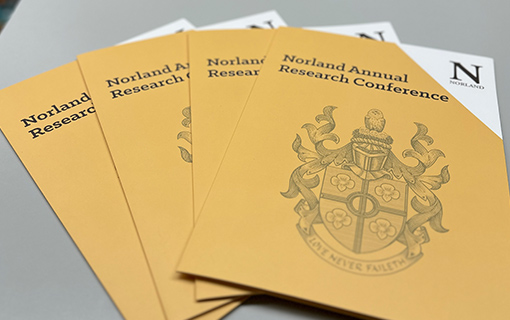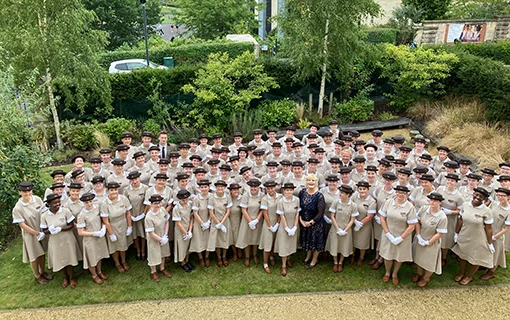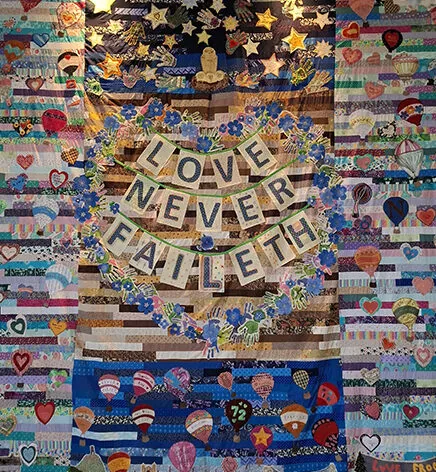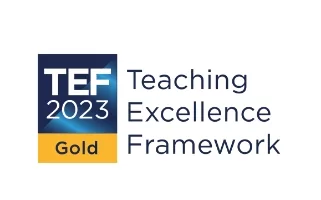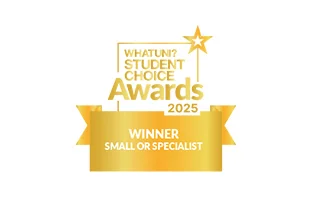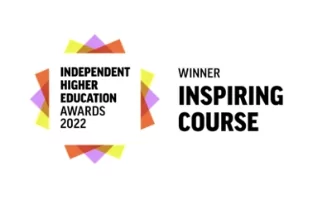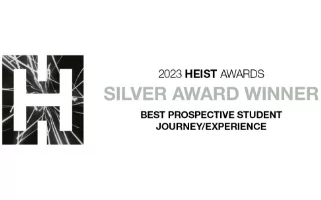Newly Qualified Nanny Jessica presents her dissertation research on sustainability at the OMEP World Conference
20 December 2022

Researching and writing a dissertation enables students to explore an area of the early years that they’re particularly passionate about. For Newly Qualified Nanny Jessica (Set 43), that subject is the environment and sustainability.
Jessica’s dissertation on this subject earned her an honourable mention from the World Organisation for Early Childhood Education (OMEP) UK. She was then invited to present her project at the OMEP World Conference in Athens in July 2022, supported by a travel grant from Norland. In her blog, she reflects on the importance of sustainable practice in the early years and instilling pro-environmental values in children during their early years.
“I am Jessica, or Jess to my charges. Prior to joining Norland as part of Set 43, I completed A levels in History, Photography and Psychology. I’m currently undertaking my Newly Qualified Nanny (NQN) year in paid employment with a family, which forms the last component of the integrated practical Norland diploma.
As part of my Norland BA (Hons) early years degree, I completed a dissertation on environmental sustainability in early childhood education and care. The project had the explicit aim of exploring and understanding one family’s perspectives and practices of instilling pro-environmental values and behaviours within their children during their early years (0-5 years).
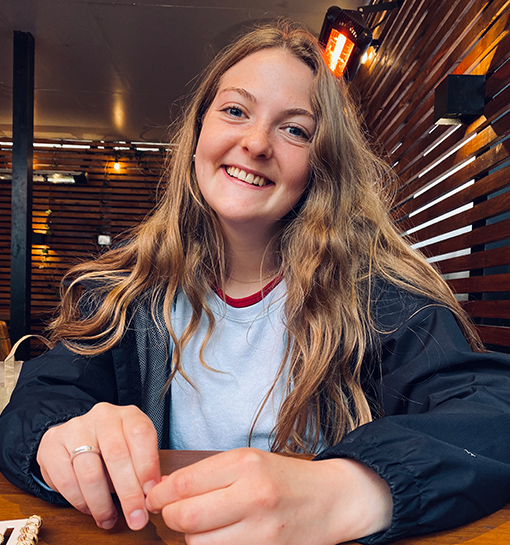
My interest in sustainability
My journey to pursue this line of research began during my second year of training when I had the privilege of being placed with a family with two children, aged five and two years, from London who proactively followed a sustainable lifestyle. One of our core standards at Norland is respecting and facilitating a parent’s wishes and accordingly I sought to understand and emulate the family’s values and behaviours.
I quickly became aware of the significant impact a single household can have in protecting the environment and grew my own interest in this area. In parallel with this, as an early years practitioner, I’m acutely aware that children’s knowledge, skills, and attitudes are shaped predominantly by their parents and caregivers. Given this knowledge and the increasing pressure to care for our planet, I was stunned at how little is understood about how parental efficacy is facilitated within home environments to inspire positive environmental practices. Despite undertaking an extensive review of the literature, I was unable to find any research which placed families as key stakeholders in the sustainability agenda. I therefore made it my mission to establish best practice for shaping environmentally conscious children in their early years within the home environment.
When I received the news that my project had been awarded an honourable mention from the World Organisation for Early Childhood Education (OMEP) UK, as part of the OMEP Education for Sustainable Development (ESD) award, I was shocked! I was so grateful to the OMEP UK committee for supporting my vision of securing a sustainable future for all present and future generations through framing families as key stakeholders in the sustainability agenda. I was subsequently invited to share my project at the OMEP World Conference in Athens, Greece in July 2022, and received a research travel grant to attend from Norland. I feel very privileged to have been given the opportunity to share my research on an international scale.

My experience at the OMEP World Conference in Athens
My experience at the conference was empowering to say the least. I was mesmerised by the huge sense of community which was so quickly established among the attendees of the conference and everyone’s drive to secure early childhood education and care as a child’s right.
One of the first sessions I attended at the conference entailed learning about the work of OMEP in the United Nations (UN) Headquarters in New York and inside the United Nations Education, Scientific and Cultural Organisation (UNESCO) in Paris. The presenters balanced the transformative power of education for sustainable development alongside the global barriers faced when implementing this during early childhood.
I particularly enjoyed attending the session titled ’Early Childhood Education for a Sustainable Future.’ It was here that I met early childhood professionals who are equally committed to building a sustainable world for all. I was fortunate enough to listen to many academics who have each made invaluable contributions to the field of education for sustainable development in early childhood education and care. For example, I was captivated by the innovative research of M. Kalafati and E. Flogaiti and their project on ‘Using Photography as a Means for Student’s Research and Expression in Early Childhood Education for Sustainability.’ In their research, photography became a canvas for capturing a child’s sustainability vision and a vehicle for activating kindergarten children and giving them a sense of agency. In parallel with this, the media stimulated their ability to cope with environmental issues.
This research was of particular interest to me because of its transferability to one of my own research conclusions – instilling pro-environmental values and behaviours in an optimistic way. I have already called upon this learning within my Newly Qualified Nanny year, recently giving each of my charges a camera to document the changes they observe during the transition between summer and autumn. The growing urgency for access to education for sustainable development within early childhood was evident within the debates which followed the series of presentations. There was an overwhelming agreement that world leaders must prioritise children’s climatic learning over economic policy imperatives, something which I also advocate for.

Presenting my research at the conference
When it came to sharing my own research, I felt nervous but, with my supervisor Dr Janbee Shaik Mopdevi cheering me on in the audience, I was able to deliver my presentation and express my passion for the subject. I began by detailing the project’s theoretical framework followed by an outline of the research methodology and finishing with the project’s conclusions and recommendations. I was so thrilled when a member of the audience approached me after my presentation explaining that she is keen to adopt several of my recommendations with her kindergarten class.
Three actions transpired to be of essence with my work:
- Empowering children as active collaborators
- Role modelling
- Affinity with nature
My dissertation continues to influence my practice as a Newly Qualified Nanny. Daily, I role model environmentally responsible choices inside the home, such as reducing food waste, reusing items for art and craft activities, and recycling. Outside of the home, I seek to facilitate regular and purposeful interactions with nature for my charges. This could be smelling flowers on the way to school or going on a nature hunt. Finally, I strive to empower the children in my care to be active collaborators in the sustainability agenda, through such activities as litter picking in the local park or dropping off the family’s soft plastics at the local drop-off point.
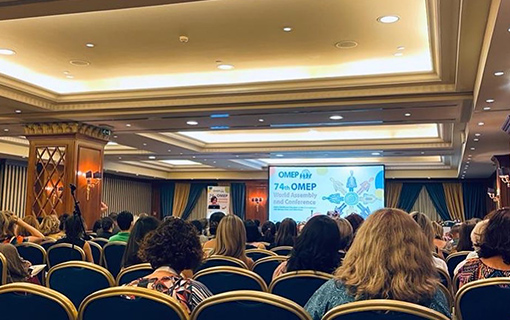
My tips for parents, carers and practitioners on facilitating sustainability in the early years
Other ways parents and practitioners, including nannies, can facilitate these three behaviours include:
- Modelling environmentally responsible choices, such as reusing items for arts and crafts activities.
- Practising responsible recycling such as using local drop-off points for hard-to-recycle items.
- Establishing regular and purposeful interactions with nature, such as going on a nature hunt, discussing different animals’ habitats, creating a bug hotel, and involving children in creating a fruit and vegetable patch.
- Empowering children as active collaborators in the sustainability agenda.
- Involving children in sorting household hard-to-recycle items.
- Create a mobile from clean and safe litter found on a litter picking session.
- Having conversations about climate change as a family about the actions children can take to have a positive impact on the world.
My passion to pursue this line of enquiry and advocacy for building a sustainable future continues, with Norland giving me the opportunity to further continue this area of research as part of its Graduate Research Internship scheme. This initiative involved me working alongside Early Years Lecturer Dr Janbee Shaik Mopdevi to produce a literature paper that explored the collaborative role of parents and practitioners in inculcating sustainable values and behaviours at home and early years settings.
Finally, I would like to take this opportunity to thank Norland for giving me the opportunity to continue research in this area and for sponsoring my attendance at the OMEP World Conference. It is only through the wealth of practical and academic opportunities offered and the incredible support provided by the staff at Norland that I have been able to pursue my ever-growing passion in environmental sustainability in early childhood education and care.”
